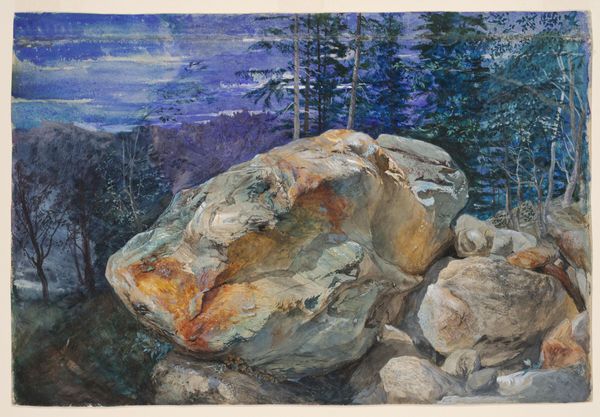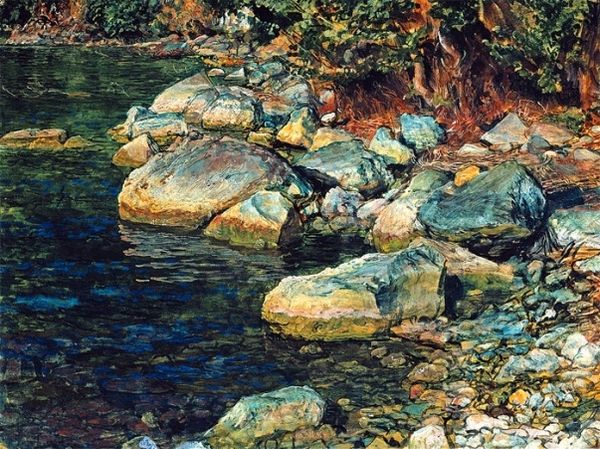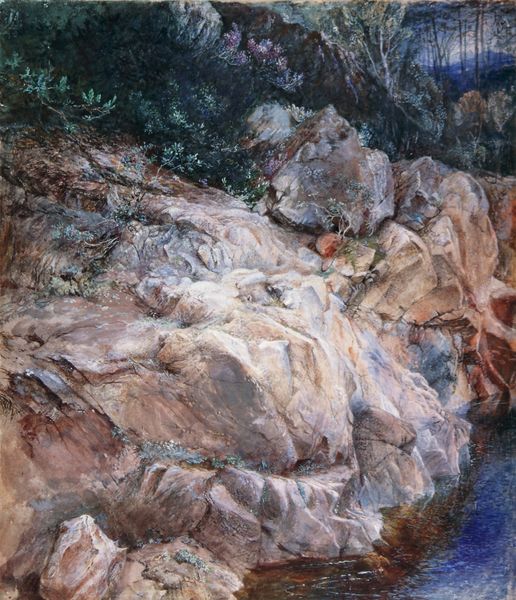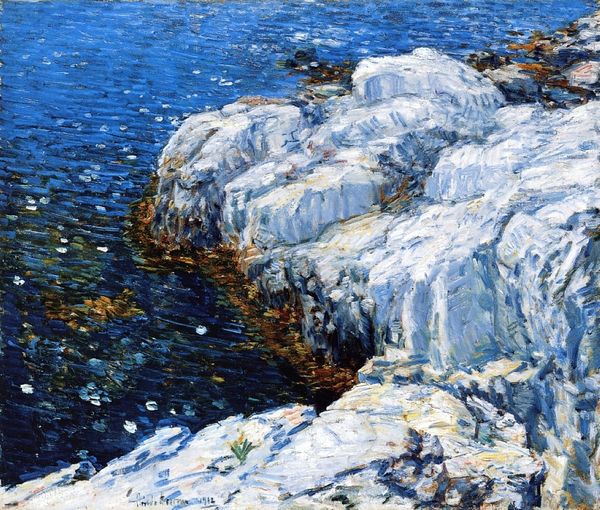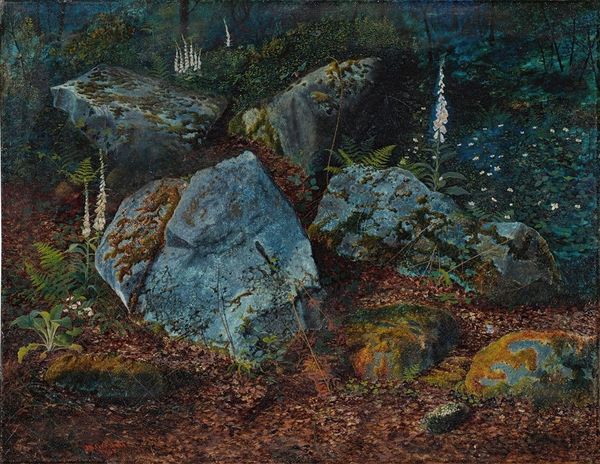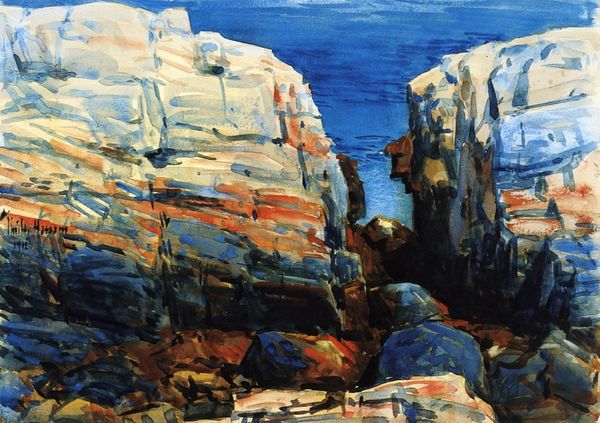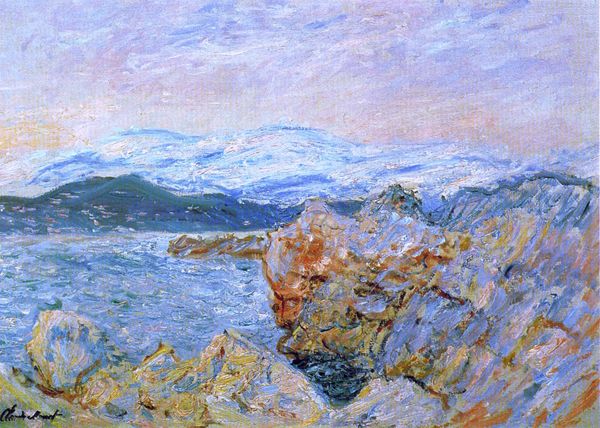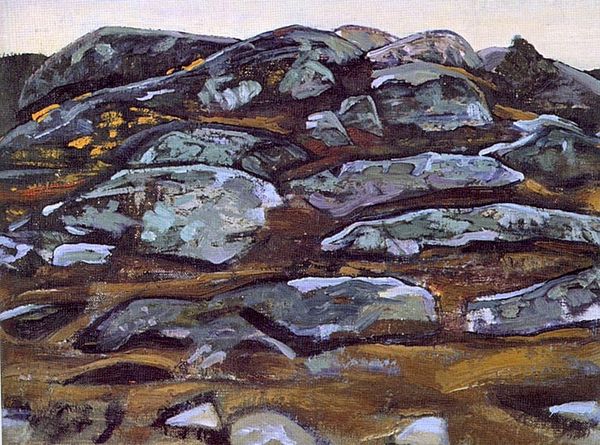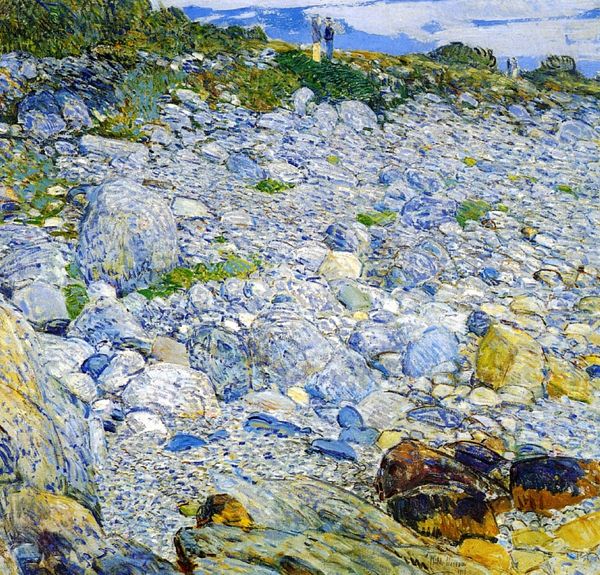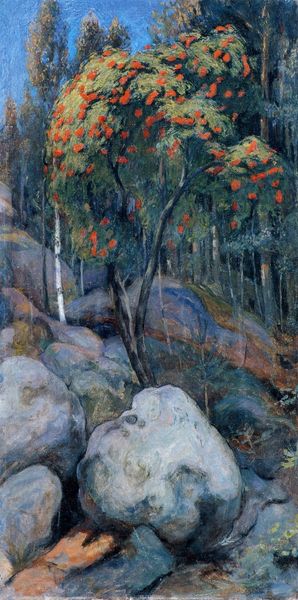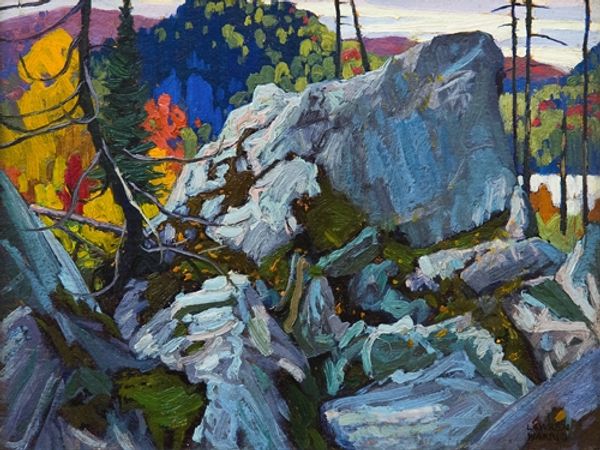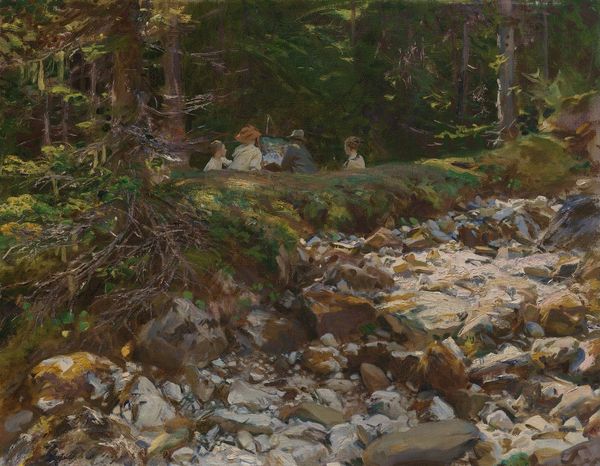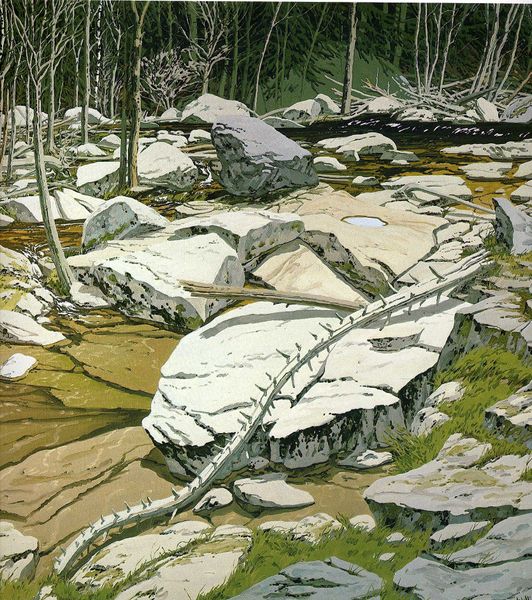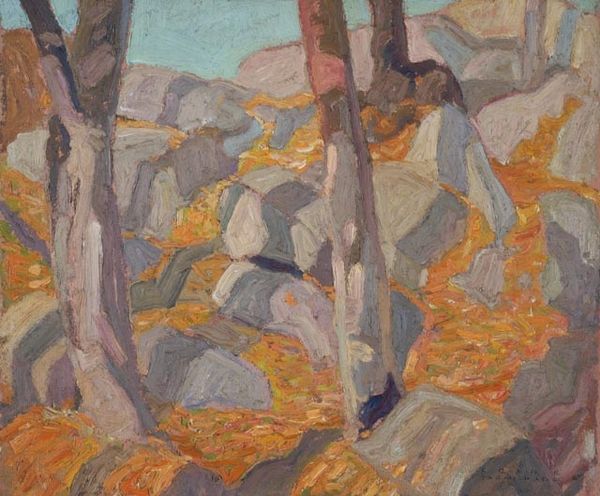
Copyright: Public domain
John Ruskin captured this watercolor fragment of the Alps, with its dominant hues of blue and grey, somewhere in the 19th century. The large rock formation in the foreground is rendered with striking color, with chromatic variation from shades of orange and yellows to greys. These hues lend the rock a unique visual texture, enhanced by Ruskin's application of visible brushstrokes and textural layering. Ruskin's choice to represent the geological fragment shifts our attention from the scenic view to the material details of a natural form. This speaks to the 19th century artistic and intellectual concerns, such as the emphasis on empirical observation and geological sciences. The dark blue of the background and the textural complexity of the foreground, create a semiotic tension between depth and surface. Consider how Ruskin’s focus on this natural form destabilizes traditional landscape painting, urging us to reconsider our relationship with the natural world. It is a fragment of a moment, a geological and artistic study, rendered in watercolor, that encapsulates larger debates about art, science, and nature itself.
Comments
No comments
Be the first to comment and join the conversation on the ultimate creative platform.
